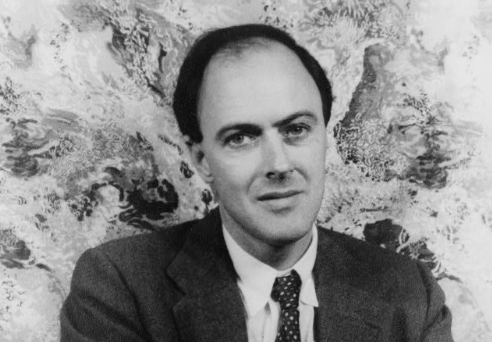50 years after the publication of Roald Dahl’s beloved children’s book, Charlie and the Chocolate Factory, The Guardian has posted online a never-before-published draft of the book’s fifth chapter. It was cut from the first printed editions of Dahl’s classic, writes The Guardian, because it was considered “too wild, subversive and insufficiently moral for the tender minds of British children.” You, the reader living in 2014, will likely have a hard time figuring out what the fuss was about.
The lost chapter, appropriately illustrated by Sir Quentin Blake, begins:
The remaining eight children, together with their mothers and fathers, were ushered out into the long white corridor once again.
“I wonder how Augustus Pottle and Miranda Grope are feeling now?” Charlie Bucket asked his mother.
“Not too cocky, I shouldn’t think” Mrs Bucket answered. “Here – hold on to my hand, will you, darling. That’s right. Hold on tight and try not to let go. And don’t you go doing anything silly in here, either, you understand, or you might get sucked up into one of those dreadful pipes yourself, or something even worse maybe. Who knows?”
Little Charlie took a tighter hold of Mrs Bucket’s hand as they walked down the long corridor. Soon they came to a door on which it said:
THE VANILLA FUDGE ROOM
“Hey, this is where Augustus Pottle went to, isn’t it?” Charlie Bucket said.
“No”, Mr Wonka told him. “Augustus Pottle is in Chocolate Fudge. This is Vanilla. Come inside, everybody, and take a peek.”
The chapter continues at The Guardian.
Related Freebies: If you head over to Quentin Blake’s web site, you can find some items that are “fun & free” — like free e‑cards designed by Blake; free wallpaper for your iPhone, iPad and desktop; and free drawings that you can color in. Meanwhile Audible.com offers The Roald Dahl Audio Collection, which features Dahl himself reading sections from Charlie and the Chocolate Factory. You can get the collection for free by joining Audible’s 30-day Free Trial program. Please read the details about the Free Trial program here, and know that we have a partnership with Audible.com. So, if you make a purchase, it will help support Open Culture.



I’m flummoxed; why was this particular draft chapter considered too subversive to print? Or did Dahl respond by writing subsequent similar chapters until the editor caved? I recall that he didn’t shirk from fighting battles of attrition with his editors and publishers when he was provoked.
Too bad the link to the rest at The Guardian no longer works.